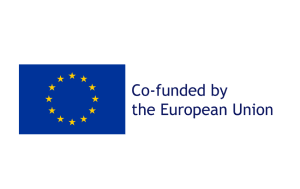Multi-national project set to boost lung cancer screening in Europe
A pioneering EU4Health project – under Europe’s Beating Cancer Plan – is launching a programme to expand lung cancer screening in countries throughout Europe.
This new initiative, called SOLACE, will break down barriers to screening so that people across all social and economic groups can access it.
More than a quarter million people in Europe die from lung cancer each year, according to the European Network of Cancer Registries. That's more than from any other cancer. However, like any other cancer, the disease is more treatable when caught early.
Low-Dose Computed Tomography (LDCT) is a safe, simple, and effective way of screening for lung cancer. Multiple trials in the USA and Europe have shown that LDCT can reduce deaths from lung cancer by 20%. The new EU-funded project will support Member States by providing a personalised toolbox to national and regional centres to facilitate lung-cancer screening programmes, with a particular focus on groups that are at higher risk due to health inequalities.
“This project will provide a comprehensive guideline for initiating lung cancer screening programmes with state-of-the-art quality and high participation rates. Typical mistakes can then be avoided, and life expectancy increased,” says Hans-Ulrich Kauczor, the project's scientific coordinator.
Many individuals at high risk are currently not accessing lung cancer screening – often because of historical inequalities that exist with marginalised and vulnerable communities. Smoking can also be more prevalent in these groups, further compounding their risk of lung cancer.
Ivica Belina, a member of the European Lung Foundation Lung Cancer Patient Advisory Group, said, “One of the main problems with lung cancer is stigma. We need a change how we relate to people suffering from lung cancer, from a societal point of view. The SOLACE project can really change that and lift the stigma for patients.”
The first pilot programmes will be held in 10 EU countries (Croatia, Estonia, France, Germany, Hungary, Poland, Czech Republic, Ireland, Italy, Spain and Greece). Many of these serve remote communities far from a hospital. So SOLACE will help provide transportation or mobile screening units.
Marie-Pierre Revel, from Assistance Publique des Hôpitaux de Paris (APHP), describes how a programme in France is planning to use “media coverage, including local newspapers and flyers, and sending women invitations for lung cancer screening along with their annual invitations er with invitation letters for breast cancer screening.”
This three-year project is coordinated by the European Institute for Biomedical Imaging Research (EIBIR) and will be implemented by the SOLACE consortium under the scientific leadership of experts appointed by the European Society of Radiology and the European Respiratory Society. Patient-led organisations, European Lung Foundation, and Lung Cancer Europe will provide patient input.
The SOLACE consortium includes 33 entities, including academic and research institutions, university hospitals, national health authorities, organisations and associations representing patients and health care professionals. The European Cancer Organisation is supporting the project’s dissemination, and policy impact.
In the long term, the project will provide valuable insights on how best to implement a cost-effective screening programme for lung cancer and the best techniques for reaching out to those groups that are at particularly high risk.
Project website: http://solacelung.eu
For further information and press queries please send an email to
Background information on lung cancer screening: https://europeanlung.org/en/information-hub/factsheets/lung-cancer-screening/

This project is co-funded under the EU4Health Programme 2021–2027 under grant agreement no. 101101187.Views and opinions expressed are however those of the author(s) only and do not necessarily reflect those of the European Union or the European Health and Digital Executive Agency. Neither the European Union nor the granting authority can be held responsible for them.

